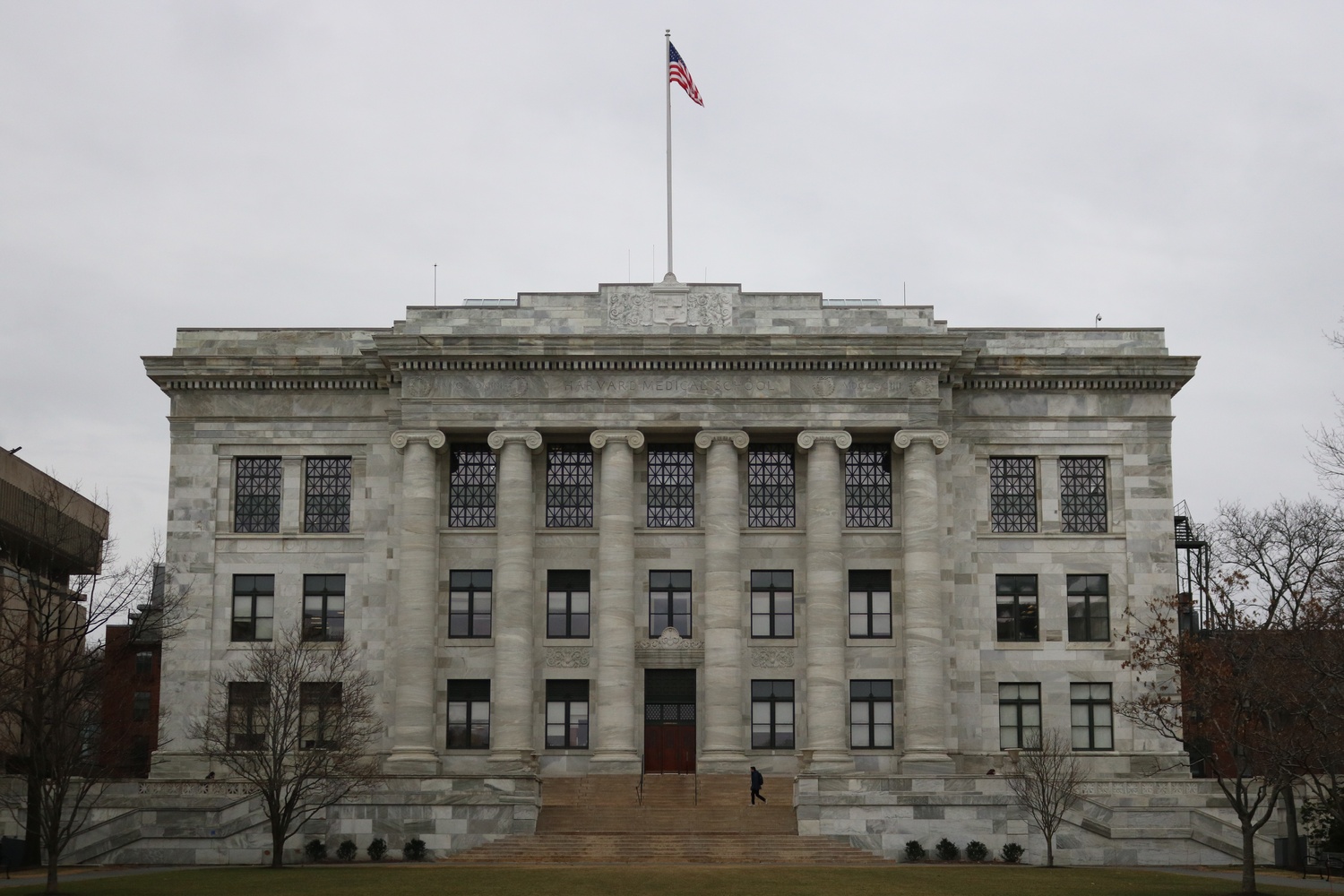
News
Summers Will Not Finish Semester of Teaching as Harvard Investigates Epstein Ties

News
Harvard College Students Report Favoring Divestment from Israel in HUA Survey

News
‘He Should Resign’: Harvard Undergrads Take Hard Line Against Summers Over Epstein Scandal

News
Harvard To Launch New Investigation Into Epstein’s Ties to Summers, Other University Affiliates

News
Harvard Students To Vote on Divestment From Israel in Inaugural HUA Election Survey
HSPH Asks Labs To Describe Funding Streams As It Braces for Financial Troubles

The Harvard School of Public Health is asking all research labs to describe their funding streams to determine how to allocate “scarce internal resources” in the wake of the Trump administration’s multibillion dollar cut to federal grants and contracts.
HSPH — which depends on federal funding for 46 percent of its annual budget, the highest proportion at Harvard — has been hit hard by the funding freeze and earlier cuts to National Institutes of Health funding. The school has already laid off workers, ended leases on research facilities, stopped work on certain research projects worth more than $60 million, and made strategic reductions in departmental budgets.
In a town hall meeting last Thursday, HSPH leadership announced a flurry of cost-cutting measures, detailed in a copy of slides presented at the town hall and obtained by The Crimson. The changes include reductions and pauses to special programs, as well as limits on discretionary spending — such as catering and travel — across all departments and units at the school. HSPH has also eliminated a shuttle route for researchers and reduced security coverage in “non-peak time.”
HSPH is also considering growing its executive education programming, renting out campus space, and offering more online degrees to generate revenue.
The programs facing cuts include three summer programs for undergraduates, including one hosted by the Office of Diversity and Inclusion and the Yerby Fellowship — a program designed for Ph.D. students seeking entry-level faculty roles, which will have two fewer slots for the coming academic year.
HSPH spokesperson Stephanie Simon wrote in a statement that the programs will be cut for one year and will be reevaluated next year depending on the school’s financial situation.
But HSPH remains a long way from offsetting the federal funding cuts — and is being forced to make difficult decisions on how to direct its already limited resources, according to Simon.
“We anticipate significant budget impact from an array of federal policy changes that have been proposed or are already underway,” she wrote in a statement.
“As a result, senior leadership is working with academic department chairs to set strategic priorities so we can restructure the school’s operations while preserving the core of our research and educational missions,” Simon added.
Simon named federal funding cuts, shifting NIH priorities, and concerns over an endowment tax, limits on international students and the revocation of Harvard’s nonprofit status as federal policy changes the school was worried about.
The new series of cuts come just over one month after several HSPH departments announced that they would reduce the number of first-year Ph.D. slots in response to a pause on grant reviews by the National Institutes of Health.
HSPH professor Wafaie W. Fawzi wrote in a statement that HSPH has been frank with affiliates about the dire effects cuts in federal funding may have to the school.
“HSPH leadership has been transparent in sharing expectations that sustained cuts in federal funding will lead to considerable downsizing of operations across research groups,” Fawzi wrote.
“This is especially concerning because the teams that lead these efforts — often built through years of mentorship, collaboration, and infrastructure development — are incredibly difficult to rebuild once disbanded,” he added.
Fawzi added that faculty members are turning to foundations, corporate firms, and donors “who share our commitment to public health” to “improve resilience in the face of future uncertainty.”
As stop-work orders trickle in across Harvard, HSPH may also have to float the losses of faculty salaries on an already constrained budget.
HSPH, which operates on a “soft money” model, contributes just 10 percent of tenured faculty members’ salaries, with the rest covered by external grants. But should tenured faculty lose grant funding, HSPH has a longstanding policy to step in and cover 83 percent of their salaries — equivalent to 10 months of pay each year.
The commitment could significantly increase financial strain on the school and force cuts elsewhere.
Simon, the HSPH spokesperson, could not immediately confirm whether any faculty salaries had been affected by existing grant cuts.
Junior faculty who lose grant funding are only given full salary support if they are in their first three years at HSPH. After that, the school guarantees only 30 percent of their salary until they earn tenure — a model that could place early-career scholars at disproportionate risk.
Correction: April 22, 2025
A previous version of this article incorrectly stated that the Harvard School of Public Health receives 59 percent of its budget from federal funding. In fact, the school receives 46 percent of its budget from federal funding. Fifty-nine percent of its budget comes from sponsored funding, including support from private foundations and state governments.
—Staff writer Dhruv T. Patel can be reached at dhruv.patel@thecrimson.com. Follow him on X @dhruvtkpatel.
—Staff writer Saketh Sundar can be reached at saketh.sundar@thecrimson.com. Follow him on X @saketh_sundar.
Want to keep up with breaking news? Subscribe to our email newsletter.
